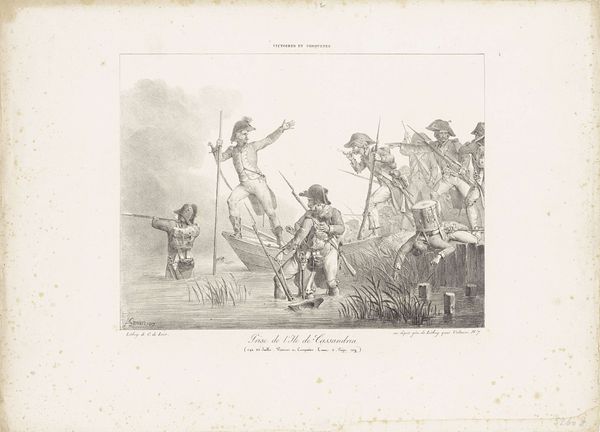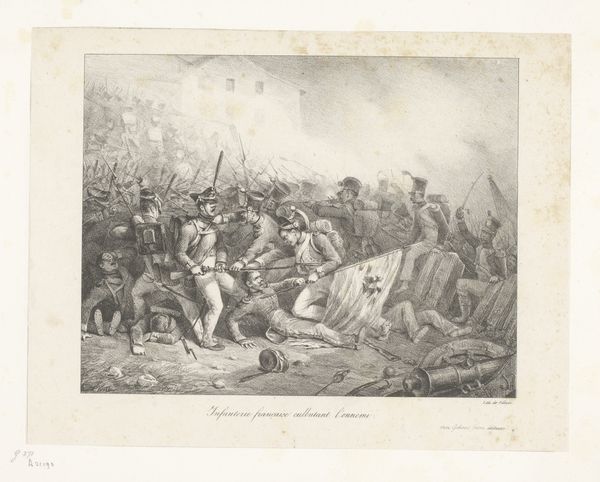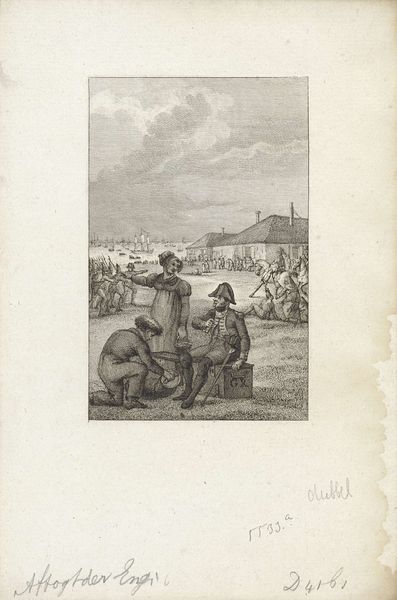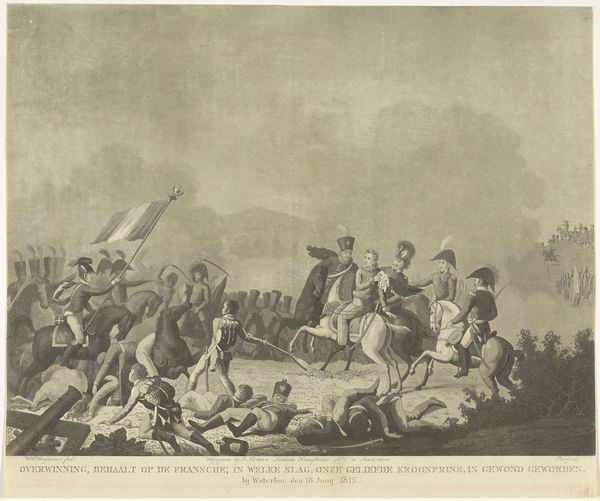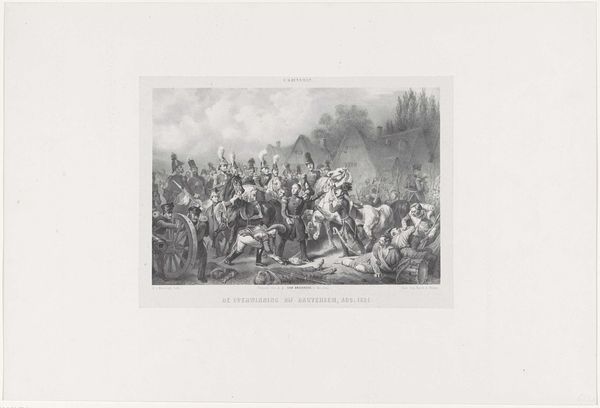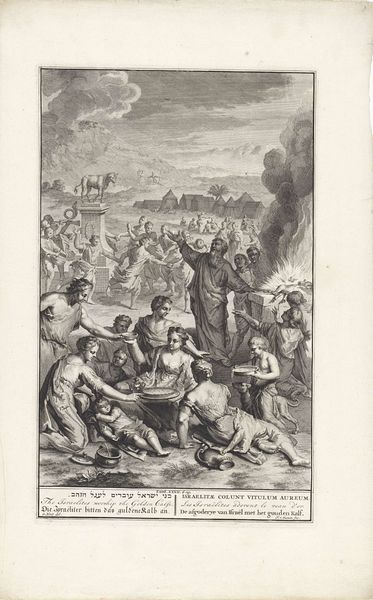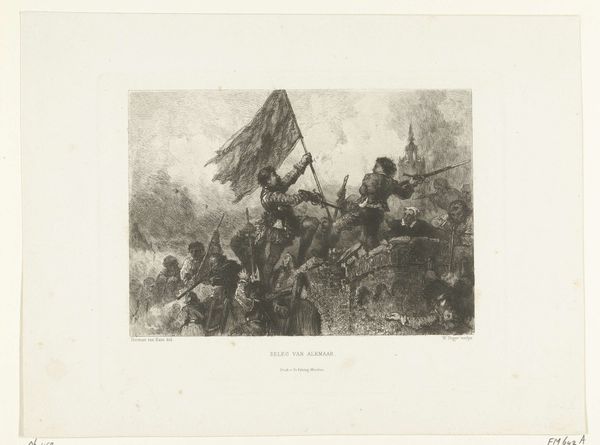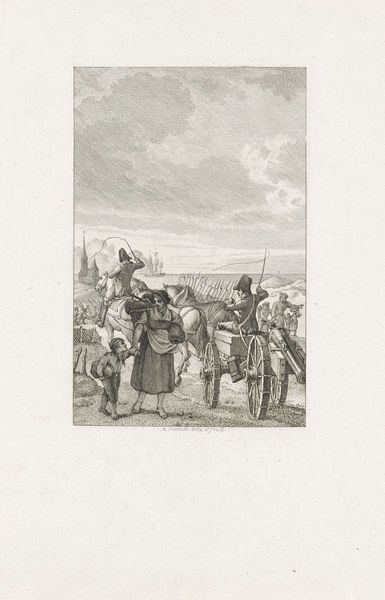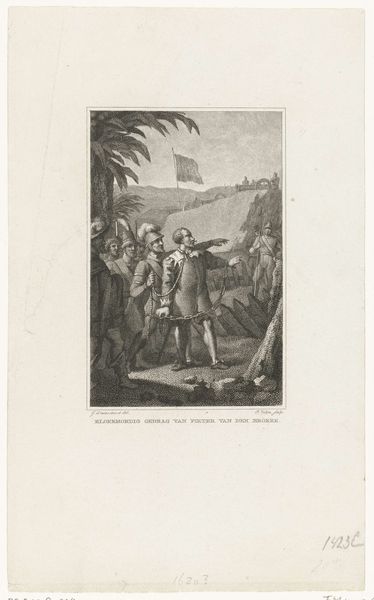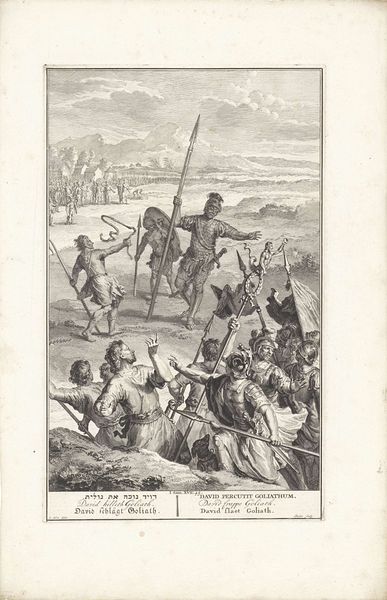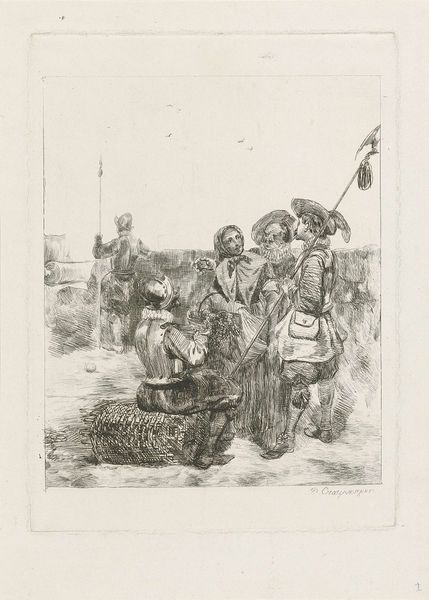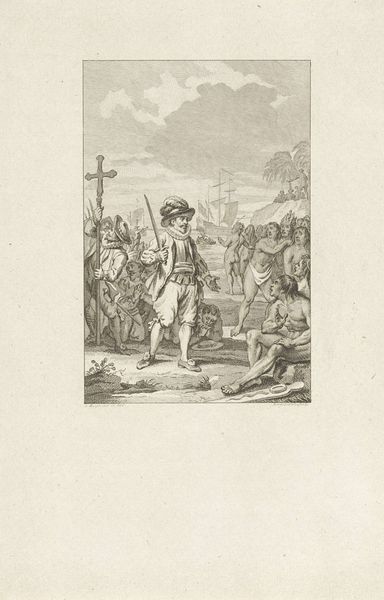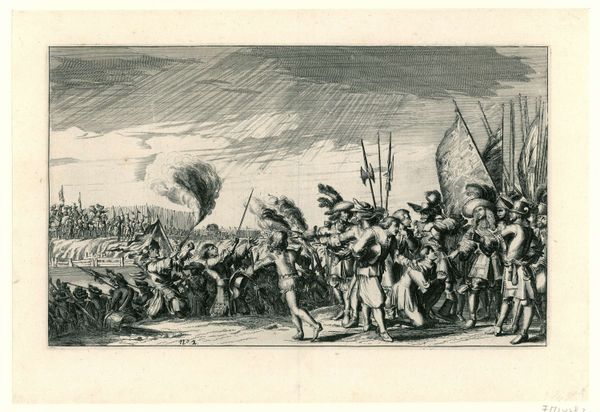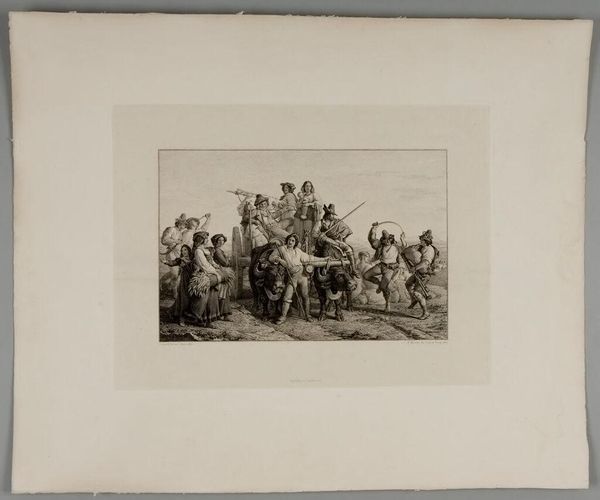
print, etching, graphite
#
narrative-art
# print
#
etching
#
landscape
#
charcoal drawing
#
figuration
#
pencil drawing
#
graphite
#
genre-painting
#
graphite
Dimensions: width 147 mm, height 201 mm
Copyright: Rijks Museum: Open Domain
Editor: Here we have Reinier Craeyvanger's "Soldiers with a Young Girl," likely created sometime between 1822 and 1880. It's an etching, so it has this intimate, almost hazy quality. I’m intrigued by the narrative aspect of it. What draws your attention most when you look at this piece? Curator: Well, the materiality is the first thing to jump out. Think about the etcher's craft – the tools, the acid, the metal plate, the labor-intensive process of creating this image. Consider the economic realities that allowed for this image's production and distribution. Was this a commercial piece, meant for mass consumption? Editor: I hadn’t considered that side of things at all. I was caught up in trying to understand the story being told! I suppose prints were more accessible than paintings back then. Curator: Exactly! The “story” is a construct presented through specific material means. We see soldiers and a young girl, but what do their clothes say about their socio-economic status? What about the printing process itself? How does etching, as a reproducible medium, affect the way we perceive the "originality" or value of the artwork? The graphite lines making this image come alive once took origin from ground mines to be fabricated into the form we now observe! Editor: So, rather than getting lost in the narrative, you're encouraging me to think about who made it, how they made it, and why? Curator: Precisely. And what that implies about the social context of the time. This challenges our traditional notions of art history by moving beyond the aesthetic and exploring the socio-economic conditions that shape artistic production. What labour went into crafting it? What would someone use the final product for? Editor: I see. Focusing on materials and production gives a whole new perspective. Thanks, I'll definitely look at art with a new set of questions now. Curator: Wonderful! It’s all about broadening our understanding, isn’t it? Seeing beyond the surface and into the means of its creation.
Comments
No comments
Be the first to comment and join the conversation on the ultimate creative platform.
